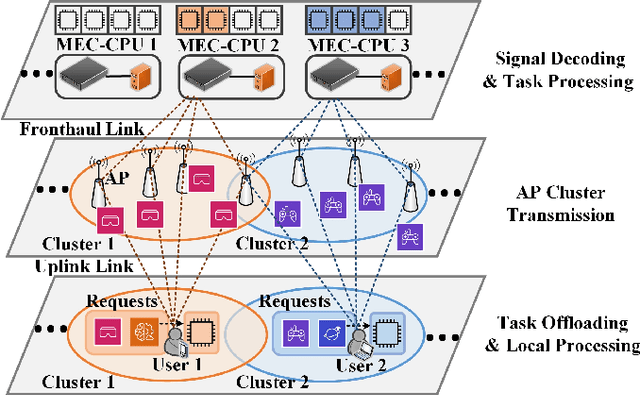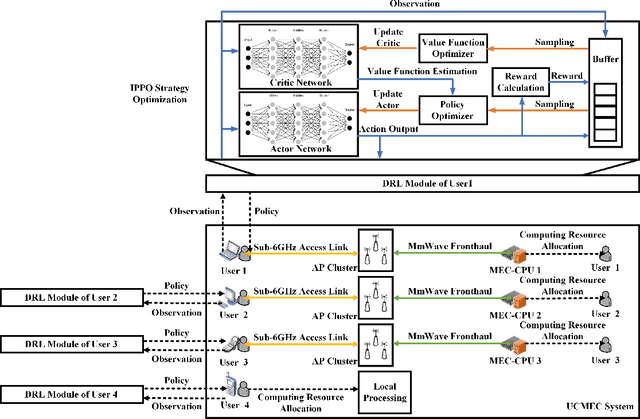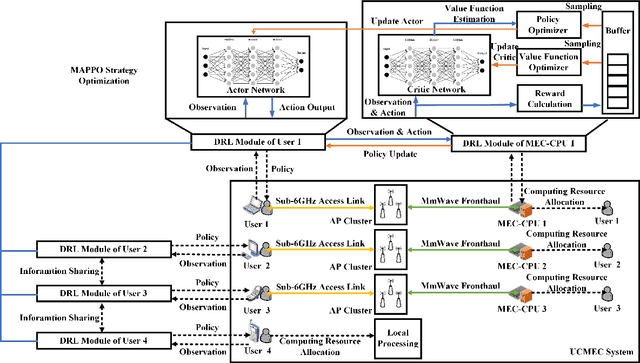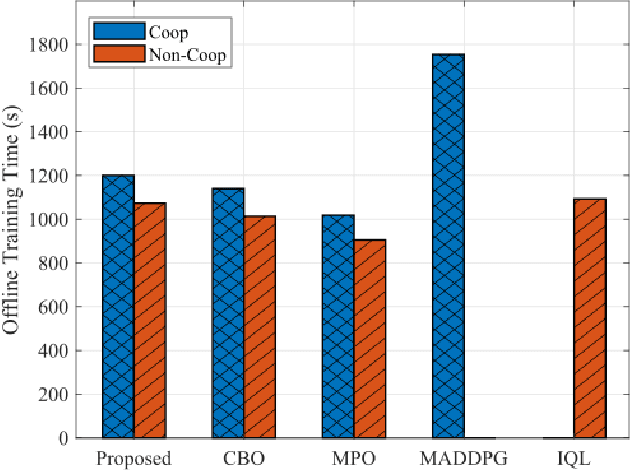Towards Decentralized Task Offloading and Resource Allocation in User-Centric Mobile Edge Computing
Paper and Code
Dec 03, 2023



In the traditional cellular-based mobile edge computing (MEC), users at the edge of the cell are prone to suffer severe inter-cell interference and signal attenuation, leading to low throughput even transmission interruptions. Such edge effect severely obstructs offloading of tasks to MEC servers. To address this issue, we propose user-centric mobile edge computing (UCMEC), a novel MEC architecture integrating user-centric transmission, which can ensure high throughput and reliable communication for task offloading. Then, we formulate an optimization problem with joint consideration of task offloading, power control, and computing resource allocation in UCMEC, aiming at obtaining the optimal performance in terms of long-term average total delay. To solve the intractable problem, we propose two decentralized joint optimization schemes based on multi-agent deep reinforcement learning (MADRL) and convex optimization, which consider both cooperation and non-cooperation among network nodes. Simulation results demonstrate that the proposed schemes in UCMEC can significantly improve the uplink transmission rate by at most 343.56% and reduce the long-term average total delay by at most 45.57% compared to traditional cellular-based MEC.
 Add to Chrome
Add to Chrome Add to Firefox
Add to Firefox Add to Edge
Add to Edge